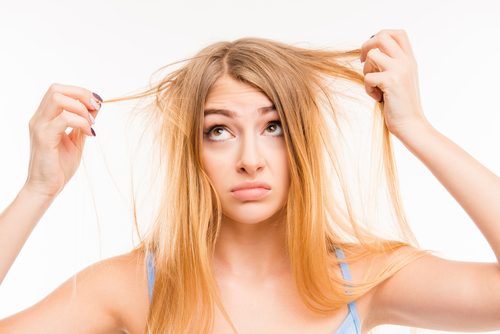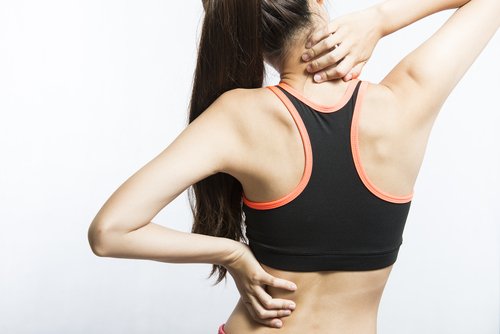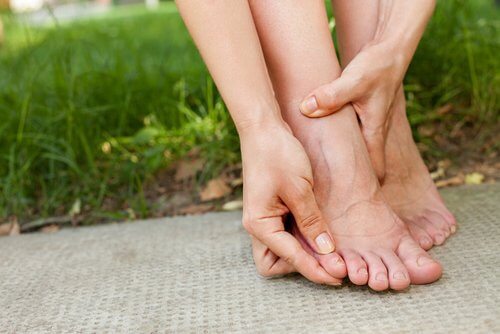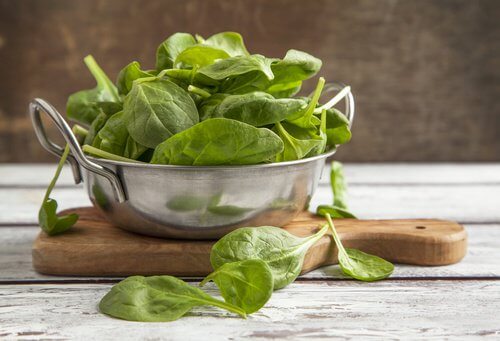7 Signs that You’re Not Eating Enough Protein
While hair loss is the most well-known sign of not eating enough protein, there are other signs you may not know about. Learn about hem in this article!
Protein is fundamental to maintaining, growing, and repairing the cells in your body. A lack of protein will make your body send you signs that are more noticeable than you may have thought.
If you think you aren’t eating enough protein, take a look at the following signs that your body may be sending you.
1. Cravings
What protein does is level out your blood sugar. If you’re not eating enough, this is not happening, so you’ll start to get sudden cravings for sweets.
2. Dry skin, weak nails and hair

If you don’t consume the amount of protein you need, your hair will get thinner and more fragile, and it will fall out more easily.
As for your skin, it’s also common for it to get flaky and excessively dry.
If you notice crests or raised areas in your cuticles, this also may be due to a protein deficiency.
3. Trouble concentrating
If you’re finding it hard to concentrate, this may also be due to a lack of protein.
When your body doesn’t get the protein it needs, you may experience short bursts of clarity followed by more confusion.
The reason this happens is that there are fluctuations in your blood sugar levels,which directly affects your brain.
4. Muscle and joint pain

If you notice muscle weakness and have joint pain even when you haven’t exercised, your problem may be a protein deficiency.
The reason is just that the tissues of your body, particularly your muscles, require protein to be properly nourished.
5. Slow recovery
If your injuries always take a long time to heal, it may be due to a lack of protein.
Keep in mind that protein is indispensable for good healing and new cell growth. Plus, it’s also in charge of strengthening your immune system.
If you lack protein, you’ll notice your wounds take longer to heal.
6. Fluid retention

A poor diet containing insufficient protein can cause fluid retention, which will make you look bigger.
Try to avoid both alcohol and too much salt, eat a balanced diet, and drink plenty of water.
7. A compromised immune system
A protein deficiency may make your immune system weaken.
Protein is essential for your immune system, so a lack of it leads to general vulnerability to all kinds of illnesses.
Recommendations if you’re not eating enough protein
If you’re not eating enough protein and have noticed some of these symptoms, it’s time to add protein-rich foods to your diet.
Eat more of the following foods:
Lentils
- Each 100 grams you eat contains 18 grams of protein. They’re also high in iron.
- This legume will help renew your body’s cells and prevent premature aging.
Spinach

- Spinach is a great option for consuming more protein, and is also a good source of calcium and iron.
- You can eat it raw, in salads, or cook it. Cooking spinach increases its protein content up to 5 times and also increases its iron.
Seeds and nuts
These are high in protein and fiber, thus preventing constipation.
All you have to do is eat a moderate amount to notice the difference.
Meat
Meat is an excellent protein-rich food.
- Chicken breast is great, low in fat and high in protein (26 grams of protein per 100 grams).
- You also have roasted turkey, which also contains little fat and even a little more protein. With it, you’ll get 29 grams of protein (per 100 grams).
- Steak provides 21 grams of protein per 100 grams.
- Lastly, ham contains 30 grams of protein per 100 grams.
No comments:
Post a Comment